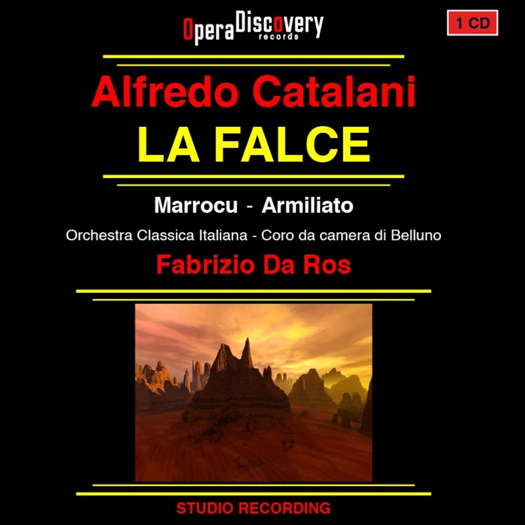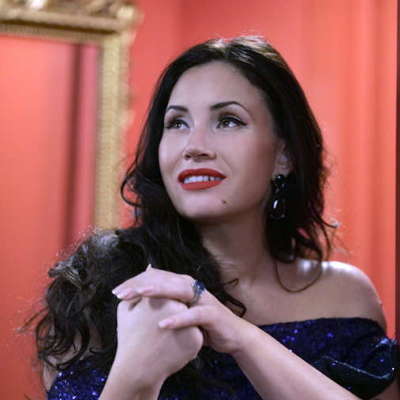- Roberto Gerhard
- Stephen Cleobury
- Heinrich Biber
- Georg Katzer
- Kosovo
- Knut Wiggen
- Eric Nowlin
- Royal Swedish Opera

Rare but Lovely
GERALD FENECH recommends Catalani's 'La falce'
'Performances are excellent in every sense and Fabrizio Da Ros keeps things moving without undue fuss.'
Alfredo Catalani was born in Lucca on 19 June 1854 and followed his musical vocation against his father's wishes. He studied at the Istituto Musicale Pacini in Lucca, in Paris with François Bazin and at the Milan Conservatory with several teachers which included the renowned Antonio Bazzini. He composed a number of operas: La falce (1875), Elda (1880), Dejanice (1883), Edmea (1886), Loreley (1890) and La Wally (1892).
He also wrote several sacred pieces, the best of which is the Mass in E minor for soloists, choir and orchestra, which Catalani composed when he was only eighteen years old. He also tried his hand at symphonic music and much chamber music for voices and instruments.
Despite the growing influence of the 'verismo' style of opera during the 1880s and early 1890s, Catalani chose to compose in a more traditional manner which had traces of German music in it. Arturo Toscanini championed his music to the hilt, and the maestro's admiration was so great that he named his daughter Wally in honour of Catalani's last stage-work. Indeed, La Wally was and still is the only opera that has retained some popularity to this day. Unfortunately, when this piece gets a performance it can be regarded as an event. Catalani died on 7 August 1893 aged only thirty-nine.
La falce must be the shortest opera ever written. Indeed, if you leave out the opening Prelude which lasts eleven minutes, the rest of the piece only lasts for some thirty-three minutes. Despite its brevity, the premiere in Milan on 11 July 1875 was a considerable success which, however, did not last long, partly because of the composer's untimely death and also because other composers managed to write pieces that captured the public's imagination such as Mascagni's Cavelleria Rusticana and Puccini's Tosca, among others.
The storyline is brief and uncomplicated and is set in the Arabian desert after the battle of Bedr on 17 March 624 AD. Incidentally, the spectacular Prelude is precisely a vivid description of this battle.
Listen — Alfredo Catalani: Prologo Sinfonico - La battaglia di Bedr (La falce)
(1 CC24261-05 track 1, 0:34-1:34) ℗ 2022 Opera Discovery :
Sole survivor of a family wiped out during the battle of Bedr, young Zohra is desperate. When she sees a man with a scythe approaching, she is certain that death is inevitable. Zohra begs the man to let her die but, instead, he offers her his love and when, at the end of the opera, a caravan goes by the two follow it towards life and happiness.
Listen — Alfredo Catalani: Marcia e Coro della carovana (La falce)
(1 CC24261-05 track 6, 1:41-2:35) ℗ 2022 Opera Discovery :
The libretto of La falce (The Sickle) is the work of none other than Arrigo Boito and this might be the reason why Catalani managed to write music that is full of dark colours and passionate phrasing of the protagonist. Nothing to drive one to the edge of his seat, but Catalani's gift for melody makes of this piece an enjoyable experience.
Listen — Alfredo Catalani: Duetto (La falce)
(1 CC24261-05 track 4, 5:14-6:09) ℗ 2022 Opera Discovery :
Performances are excellent in every sense and Fabrizio Da Ros keeps things moving without undue fuss. Rare but lovely. Recommended, especially to Italian opera buffs.
Copyright © 16 March 2024
Gerald Fenech,
Gzira, Malta





